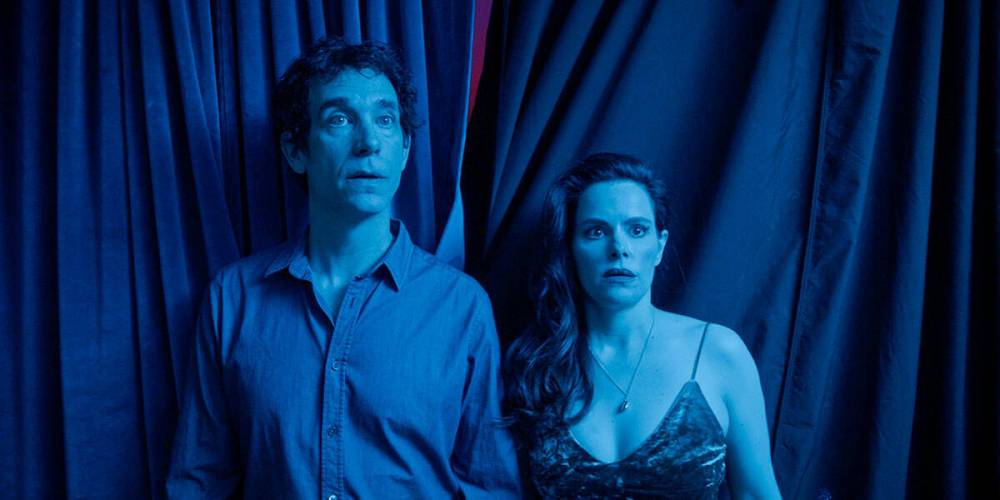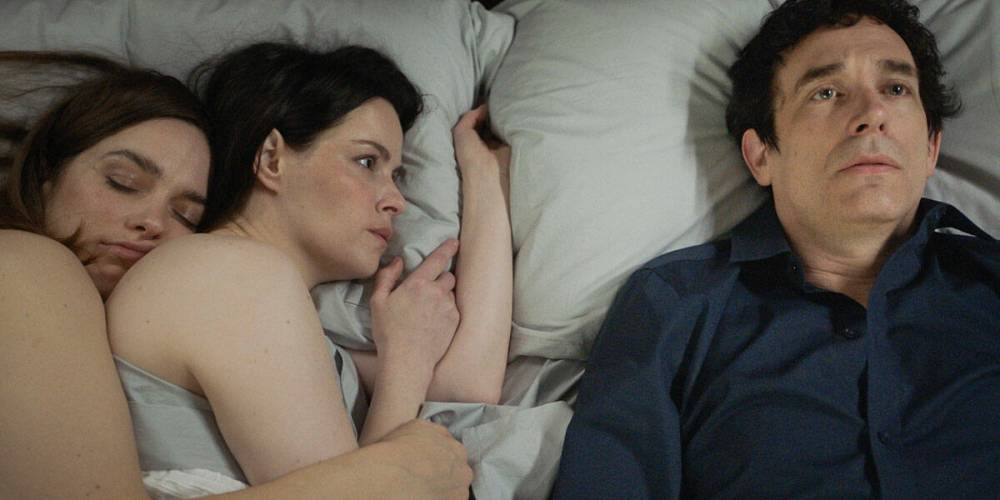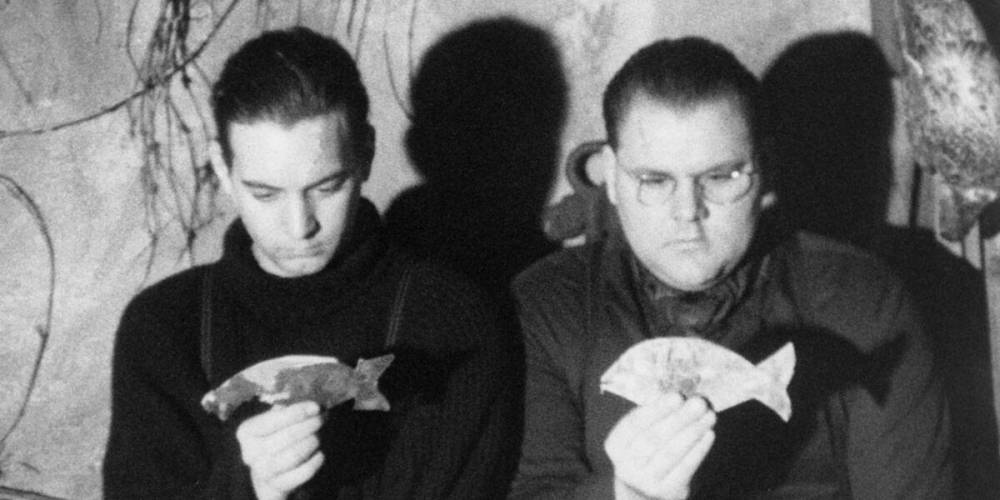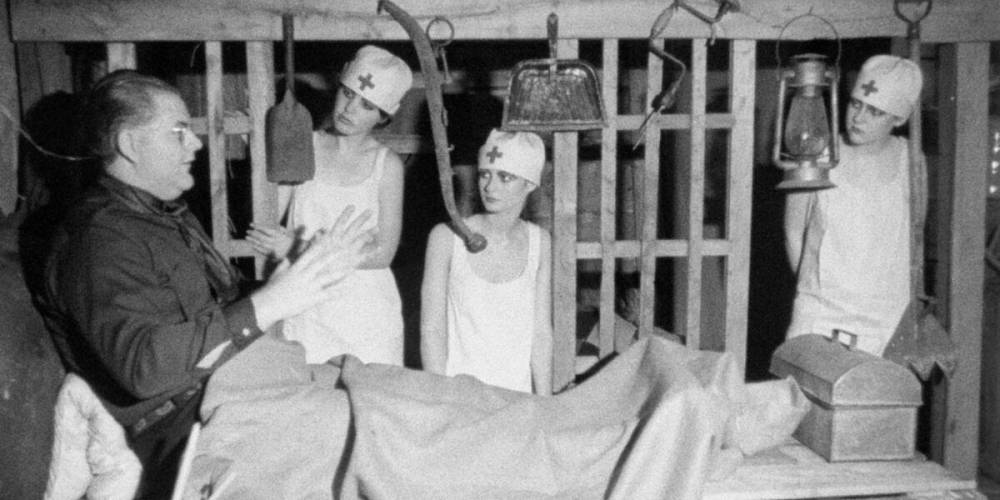A taste of Manitoba Several locally shot, produced features will be screened at Toronto International Film Festival
Read this article for free:
or
Already have an account? Log in here »
To continue reading, please subscribe:
Monthly Digital Subscription
$0 for the first 4 weeks*
- Enjoy unlimited reading on winnipegfreepress.com
- Read the E-Edition, our digital replica newspaper
- Access News Break, our award-winning app
- Play interactive puzzles
*No charge for 4 weeks then price increases to the regular rate of $19.00 plus GST every four weeks. Offer available to new and qualified returning subscribers only. Cancel any time.
Monthly Digital Subscription
$4.75/week*
- Enjoy unlimited reading on winnipegfreepress.com
- Read the E-Edition, our digital replica newspaper
- Access News Break, our award-winning app
- Play interactive puzzles
*Billed as $19 plus GST every four weeks. Cancel any time.
To continue reading, please subscribe:
Add Free Press access to your Brandon Sun subscription for only an additional
$1 for the first 4 weeks*
*Your next subscription payment will increase by $1.00 and you will be charged $16.99 plus GST for four weeks. After four weeks, your payment will increase to $23.99 plus GST every four weeks.
Read unlimited articles for free today:
or
Already have an account? Log in here »
Hey there, time traveller!
This article was published 07/09/2022 (1187 days ago), so information in it may no longer be current.
Winnipeg-based director Sean Garrity says it best when it comes to getting an invitation to screen your film at the Toronto International Film Festival:
“I think we take it for granted that we have one the top five film festivals on planet that takes place in Canada,” Garrity says. “We have this space to play our films, and it’s a huge privilege. I’m always very honoured whenever TIFF programs my work.
Garrity will be making his fifth trip to TIFF with The End of Sex, which he directed based on the script of fellow Winnipeg homeboy Jonas Chernick. He is not alone.
After a two-year pandemic gap in which the festival was largely reduced to online-screenings with a mix of cautious in-person events, TIFF roars back to something resembling the usual orgiastic cinematic affair in 2022. And local film companies or local talents are well represented with entries including a suitably celebratory opening night film.
Supplied Buffy Sainte-Marie says she bonded with Winnipeg-based director Madison Thomas and writer Andrea Warner during production of Carry It On, a film about her life that will be screened at the Toronto International Film Festival.
Buffy Sainte-Marie: Carry It On is a jubilant film biography of Buffy Sainte-Marie, covering the tumultuous eight-plus decades of her life, from a troubled childhood in Maine, where she was raised by adoptive parents, through the 1960s, where she found her voice as a folk singer, songwriter and troublemaker (the film reveals she was specifically the target of an FBI blacklist) and to her current status as musician, innovator and educator. The film was produced by local production company Eagle Vision, in conjunction with White Pine Pictures, and was directed by Winnipeg’s Madison Thomas, who is enjoying her first trip to TIFF as a filmmaker, scoring a plum opening night spot in the process.
Tales from the Gimli Hospital Redux, a 4K restoration of local filmmaker Guy Maddin’s first feature from 1988, an especially sweet venue for the film since it was famously rejected by a TIFF jury in 1988.
The End of Sex, despite all the homegrown talent in its crew roster, was actually shot in Hamilton, Ont. Yet it feels very much like a kind-of sequel to Garrity and Chernick’s 2012 Winnipeg-lensed comedy My Awkward Sexual Adventure, in which Chernick’s uptight accountant got a lesson in erotic self-discovery from a stripper, played by a pre-Schitt’s Creek Emily Hampshire. This time, Chernick and Hampshire play a married couple looking to spice up their sex lives when their two daughters take off for a week-long holiday camp.
In the film about her life, Buffy Sainte-Marie is shown to be frequently ahead of the curve, whether it comes to music, digital technology or representation.
One scene recalls a “controversial” chapter when she signed on to a guest role on the ’60s TV series The Virginian and insisted that background players portraying Indigenous folk were themselves Indigenous, and not white people in make-up.
Her stand for representation, which resonates especially strongly in recent years, may lead one to believe she was waiting for this moment to participate in a documentary to be made with Indigenous talent behind the camera, including producer Lisa Meeches of Eagle Vision and Winnipeg-based filmmaker Madison Thomas directing.
“I’ve known Lisa and Eagle Vision for a long time and I respect their body of work,” says Sainte-Marie, 81, in a Zoom interview from her home in Hawaii. “But no, it wasn’t that I was waiting for a great Indigenous team before agreeing to a documentary. Joan Prowse made the first documentary film about me called A Multimedia Life in 2006, and although lots of my Saskatchewan family participated in it, Joan herself isn’t Indigenous, and I loved it.”
“I wanted any part that I was going to be involved in to be creative for me.” – Buffy Sainte-Marie
“The facts are the facts, regardless of timing or who is recording your story,” says Sainte-Marie.
Yet Sainte-Marie acknowledges she formed a warm bond with director Madison Thomas and writer Andrea Warner, who had previously written a biography of Sainte-Marie.
“With Andrea and Madison involved, I just found it really comfortable,” Sainte-Marie says. “I really want to leave things up to them. I didn’t want to direct. I didn’t want to be the only one involved in choices. I didn’t want it to be a vanity project or talking head project.”
“I wanted any part that I was going to be involved in to be creative for me,” she says. “I felt like showing the creative team everything I had in terms of photos and videos and all that kind of stuff, but then I want it to them to make the decision as to what to leave in or leave out.
“I didn’t want it to be just my project.”
For her part, Madison Thomas, 30, found an opportunity to explore a figure that was always present in her life.
Supplied Madison Thomas directed Carry It On, the film about Buffy Sainte-Marie’s life.
“I grew up in Winnipeg’s North End, and it has a very prominent Indigenous urban population,” says Thomas, whose background is Ojibwe/Saulteaux and Russian/Ukrainian settler.
“Growing up in a mixed household, her name was just kind of … around,” Madison says in a Zoom interview.
“She was very much in that background soundtrack kind of way,” Thomas says. “It’s not like my mom sat me down in front of the record player and said: ‘This is Buffy Sainte Marie. Listen to the lyrics.’ But the music was always on and her name was something I was very familiar with.
“Then in 2015, first year at university, I remember the album coming out, Power in the Blood and that kind of set me on a deep dive,” she says. “I knew this woman growing up and she played a lot of folk music and (songs) Until It’s Time for You to Go and Up Where We Belong and they were all kind of similar-ish vein. So what is this hip-hop dubstep thing going on? This is new music? What is going on? “That album sent me on a deep dive,” Thomas says.
“Who the hell is this lady from Saskatchewan originally?”
Supplied Jonas Chernick and Emily Hampshire in a scene from The End of Sex.
Sean Garrity wryly observes that there has been a Murphy’s Law dynamic behind his career. When he lives in Winnipeg (as he currently does), he is asked to shoot movies in Ontario. And when he moved to Ontario, he is obliged to film in Winnipeg.
That is why Garrity happens to be in Ontario’s Algonquin Park, shooting another film with his frequent creative partner Jonas Chernick.
He acknowledges that his TIFF film, The End of Sex started life as a semi-sequel to My Awkward Sexual Adventure, which was a much-downloaded comedy that spawned several remakes in France, South Korea and Lithuania.
“There were a lot of people that really wanted us to do a sequel, and Jonas and I batted it around for awhile and it felt … awkward,” Garrity says. “We said everything that we had wanted to say at the on that topic and there was just nothing left to tell.”
But they did hit on a comedy in a similar vein, originally titled Menage a Trois, “about a couple trying to get a threesome going. The same tone, different characters, different worlds. They have something else to say, but it’s the same guys making a sex comedy.”
Supplied Melanie Scrofano, Emily Hampshire and Jonas Chernick in a scene from The End of Sex.
Garrity and Chernick were ultimately approached by the Hamilton production company Vortex, asking for pitches, and they bit on Menage.
“So of course, as soon as they said they wanted to do this film, I was like: ‘Hey, would you shoot in Winnipeg? Great tax credits.’ But they would not budge. It had to be Hamilton.”
Yet Winnipeg did make it into the film, since Garrity worked on it here in post-production. As the film started making its way to a final cut, he found he needed some establishing shots, exteriors, and Winnipeg filled that bill. Also, the soundtrack is filled with Winnipeg musicians.
“We needed music to fill in these sources, such as background music in the bar. I might ordinarily go to some service to do it,” Garrity says. “But it was way easier for me if I just reach out to my community. I worked as a musician for 10 years before I took on filmmaking, so I’m very tight with that community.”
“The composer on the film is based out of Toronto, but he’s a River Heights boy, Ari Posner.”
Supplied Kyle McCulloch, left, and Michael Gottli in a scene from Tales from the Gimli Hospital Redux, a 4K restoration of local filmmaker Guy Maddin’s first feature from 1988.
There is a beautiful irony to Guy Maddin presenting the new 4K restoration of Tales from the Gimli Hospital at TIFF this year. After all, TIFF notoriously rejected Maddin’s first feature back in 1988.
“I remember be feeling furious at the time,” Maddin, 66, says of that dismissal, when only one of three jurors — critic Geoff Pevere — could not convince fellow TIFF jurors Piers Handling and Kay Armatage that Maddin’s film was as remarkable as it clearly was.
“(Geoff) had no luck in convincing them that the effects in this film were intentional, and not the product of some inept crackpot out in Manitoba,” Maddin recalls in a phone interview, adding that he later became friends with Handling and Armatage.
“Over the years though, Piers introduced me on stage for every one of my features after that, he never fails to apologize for not accepting Gimli Hospital in the first place,” Maddin says. “Kay also been extraordinarily generous to me.”
”It’s only appropriate… When you meet the love of your life, maybe that person ignores you and gives you the cold shoulder and that makes you want them even more.” – Guy Maddin
Indeed, in the years since, Maddin has presented an astonishing 11 features, eight shorts and an art installation (Hauntings) at TIFF.
“It’s only appropriate,” Maddin says philosophically. “When you meet the love of your life, maybe that person ignores you and gives you the cold shoulder and that makes you want them even more.”
Still, the film itself seems an odd choice for a 4K restoration, given that it was meant to look like an old film that perhaps had been stored too long in a forgotten warehouse. But the idea of a restoration by filmmaker Ron Mann’s company filmswelike was welcome when it “just came out of the blue.
“It was in the depths of the pandemic, when I was living in a basement in Toronto and teaching over Zoom and napping all day long, tortured by insomnia all night, this great news came out that he might start restoring my movies.”
Though the black-and-white film was intended to look already degraded, the restoration gave Maddin the opportunity to make some important fixes.
“When I made it in 1988, I thought this is one film that this will never have to be restored. It will just get better as it get older,” he says. “And it turns out that wasn’t true though, because to save money, it was printed then on colour film stock instead of black and white, like I had asked.

“And then when a colour film get scratched, the scratches are neon green or neon blue and things like that,” Maddin says. “So it was a black and white film, but it didn’t degrade the way old movies did. It degraded in a new way that I didn’t love. So my original joke to myself that these will never need restoring also became moot when that became apparent.”
The restoration process, taken from the original negative, will give the film added detail that had been lost in the original prints.
“I was often disappointed that all the sets that I had built, props that I had put in place and costumes and things that just disappeared into very high-contrast blackness,” he says. “With digital 4K colour grading, we can still keep all the darkness of noir expressionistic filmmaking, but you can tweak the dials just so that enough of this set is returned to view.
“So there’s a little more detail visible there, just a little more suggestion of the world,” he says. “Just a little. But it’s there, it’s palpable, and it really makes a difference. And it makes if you really felt good to get that right.”
Other films playing Toronto with a local element include: The Swearing Jar, from local production company Farpoint Films, Marie Clements’ Bones of Crows, produced by Eagle Vision, and episodes of the newest season of The Handmaid’s Tale, from Original Pictures. Former Winnipegger Matthew Rankin also returns to the fest with a short film about a park bench titled Municipal Relaxation Module.
The Toronto International Film Festival opens Thursday and runs to Sept. 18.
randall.king.arts@gmail.com
Twitter: @FreepKing

In a way, Randall King was born into the entertainment beat.
Our newsroom depends on a growing audience of readers to power our journalism. If you are not a paid reader, please consider becoming a subscriber.
Our newsroom depends on its audience of readers to power our journalism. Thank you for your support.
History
Updated on Wednesday, September 7, 2022 8:39 PM CDT: short headline added








